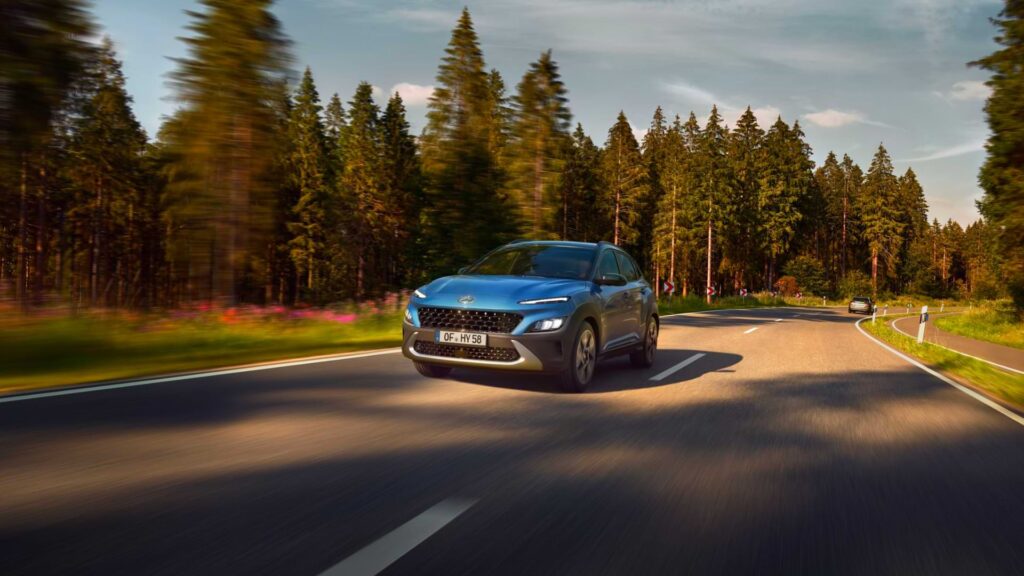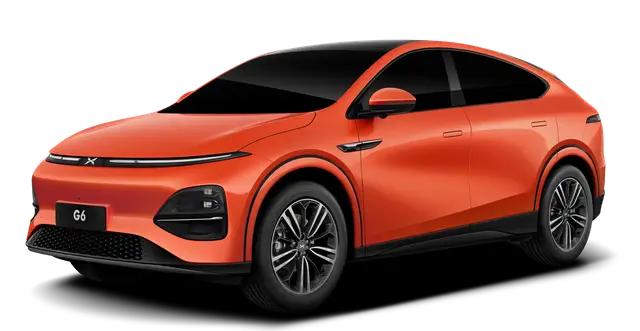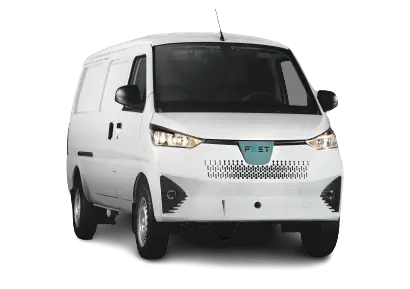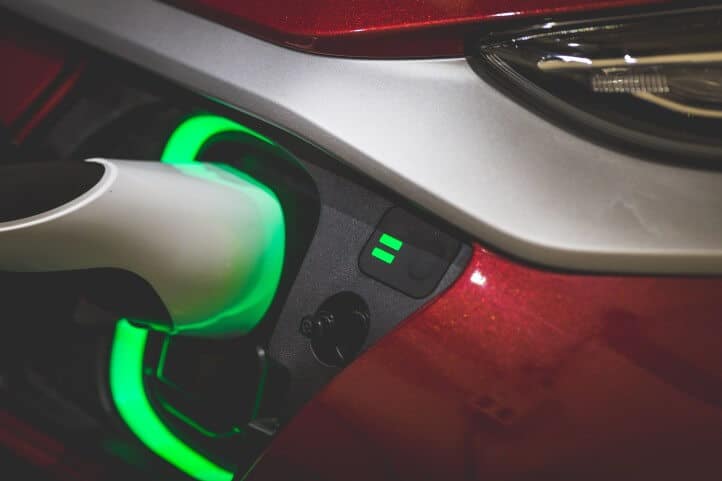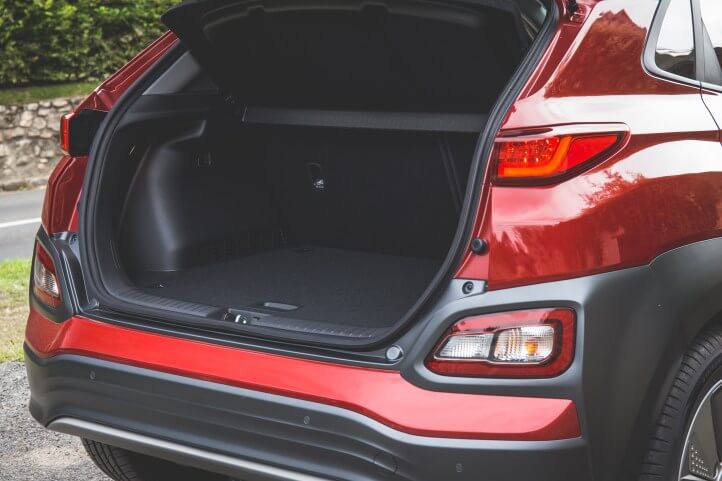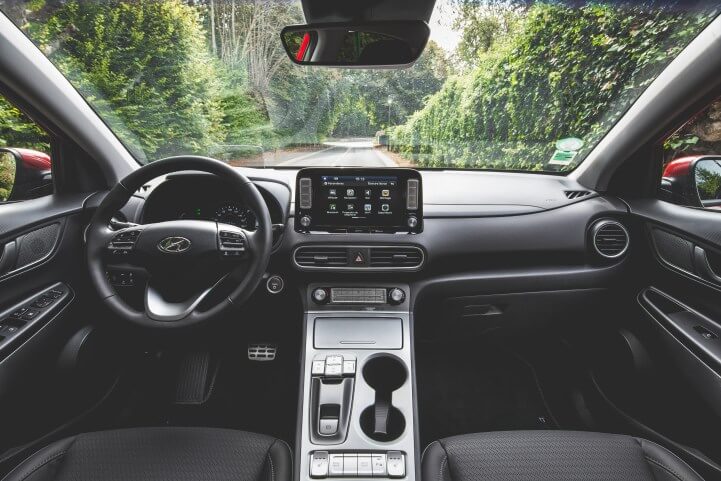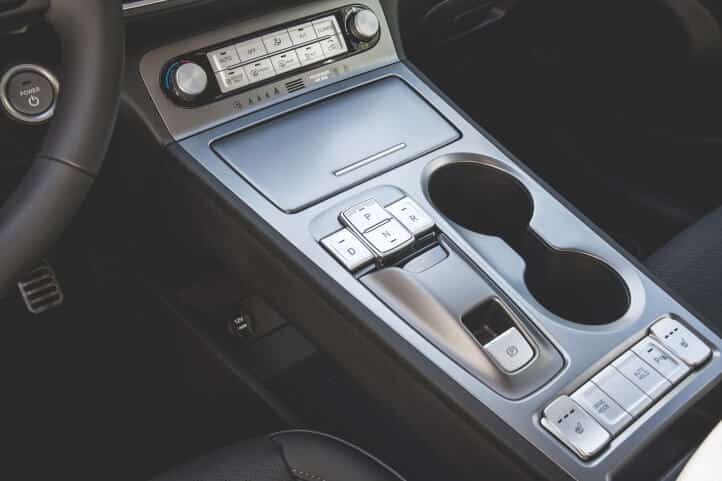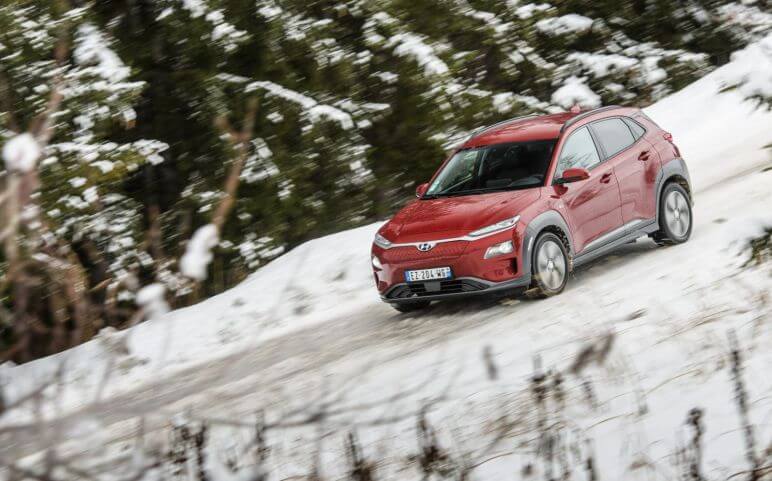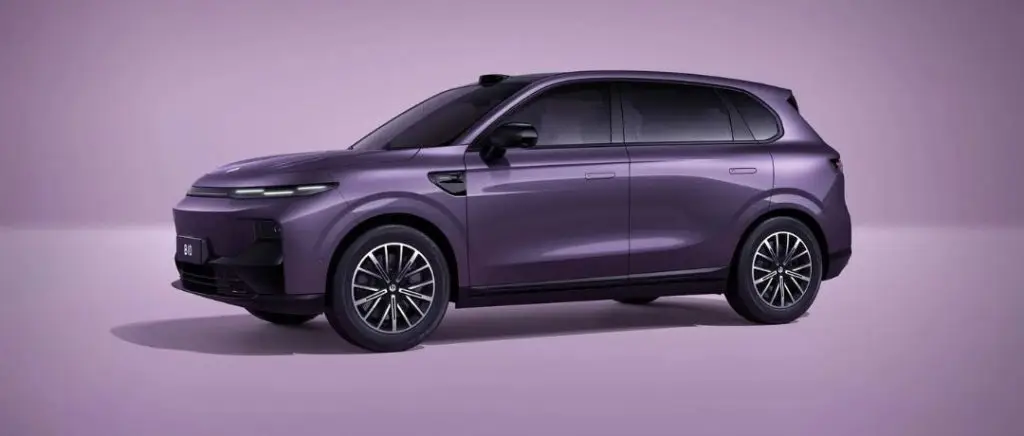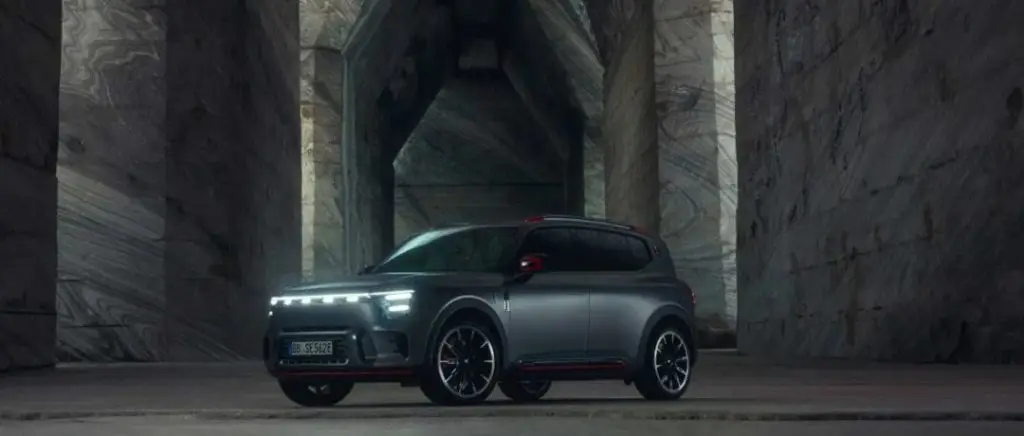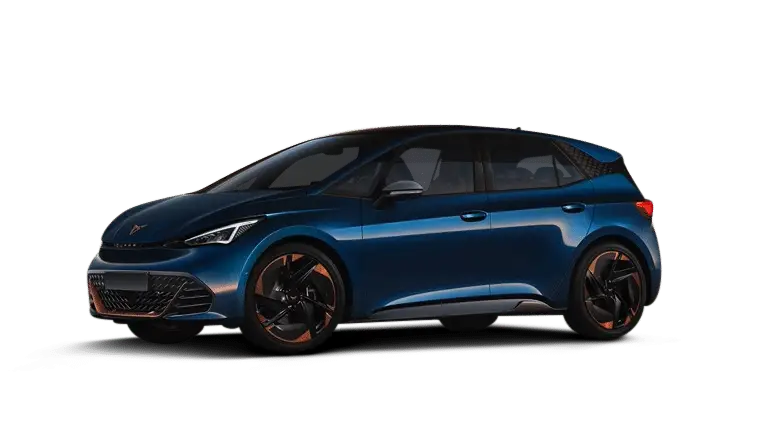
VS
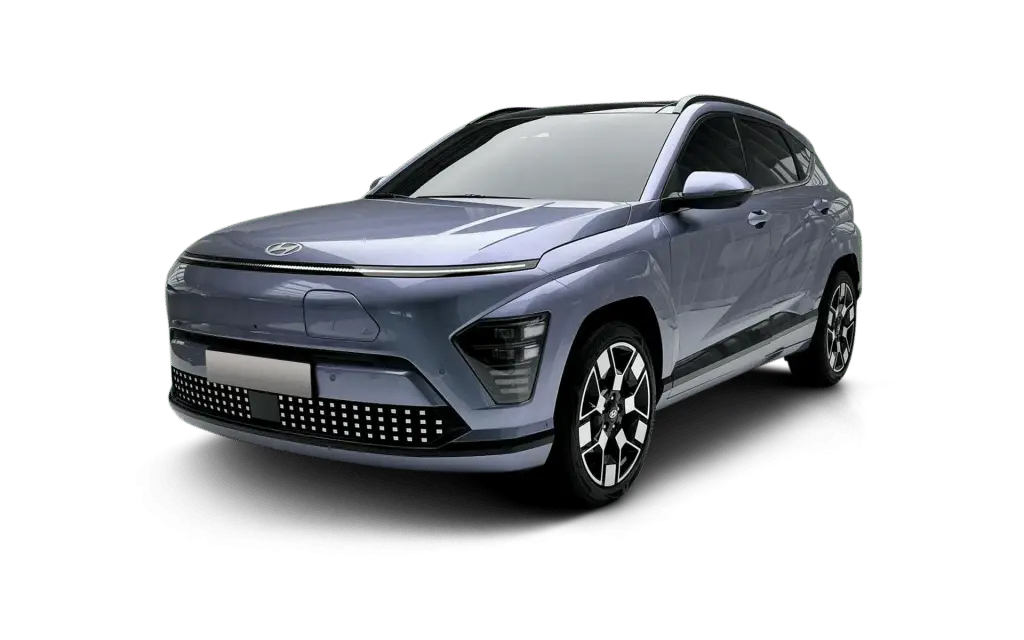
Comparez la Cupra Born vs la Hyundai Kona dans notre outil comparateur de voitures électriques
The Hyundai Kona Electric 39 kWh at a glance
Performance: 136 hp - 100 kW
4-door / 5-seater
Battery: 39 kWh
Range (WLTP): 289 km
Fuel consumption: 13.9 kWh/100 km
Transmission: Front-wheel drive
- Accelerated AC charging (at home)
- Max AC power: 7.2 kW - Single-phase
- AC connector: Type 2
- DC fast charging
- Max DC power: 77 kW
- DC connector: Combo CCS
Length: 4180mm
Width: 1800mm
Height: 1570mm
Trunk volume: 332L / 1114L
Empty weight: 1535 kg
Efficient little SUV
This small battery-powered SUV is the second all-electric model launched by the Korean automaker in the last 12 months, following the Hyundai IONIQ Electric, the first of 38 alternative-powered vehicles Hyundai plans to launch by 2025.
It's a deadline that Hyundai should easily meet. With hybrid and two plug-in versions of the IONIQ already on sale on the French market, and the NEXO hydrogen fuel cell SUV, Hyundai already offers more alternatives than any other brand of combustion-powered vehicle. The 39 kWh model can accelerate from 0 to 100 km in 9.7 seconds. Where the Nissan Leaf has its E-Pedal - meaning that the car starts to slow down gently when you take your foot off the accelerator pedal - the Hyundai Kona Electric has a similar feature, but you have to press a button on the steering wheel, and it takes a little getting used to.
But it's undoubtedly the Kona Electric range that offers the most possibilities.
According to Hyundai, the Kona Electric 39 kWh covers 289 km on a single charge of its liquid-cooled 39 kWh lithium-ion polymer battery.
Recharging takes 50 minutes with a 50 kW CCS charger or 6 hours 30 minutes with a 7.2 kW home charger (which is the most common). If you're not in a hurry, the Kona Electric 39 kWh can be recharged from a 240 volt/10 amp home socket in less than 21 hours.
Beev offers multi-brand 100% electric vehicles at the best prices, as well as recharging solutions.
Hyundai Kona Electric: Electric with style
40% of Kona buyers cite style as the main reason for their purchase, for its eccentric look.
The Hyundai Kona Electric is available in six colors: Pulse Red, Phantom Black, Lake Silver, Galactic Grey, Ceramic Blue and Chalk White.
The Kona electric SUV seats five and has a cargo space of 332 liters (VDA) with the rear seats in place, which increases to 1114 liters when the seatbacks are folded down.
As is increasingly the case with other mainstream Hyundai models, the Kona Electric includes SmartSense, its safety technology. The package includes intelligent cruise control, lane keeping assist, blind spot warning and hill braking control.
Like the combustion-powered Kona, it's the everyday practicality of the Kona Electric that makes the difference.
Overall, Hyundai has made the Kona Electric range (and IONIQ for that matter) easy to maneuver. The ease with which the vehicle can be handled on the first drive will satisfy and reassure those driving an electric car for the first time.
Acceleration is efficient in all gears, with no jerking and very linear acceleration. Whether at a standstill or overtaking, the Kona Electric responds instantly to the driver's demands.
Despite weighing more than conventional Kona versions (1535 kg vs. 1383 kg), the electric model's low center of gravity and balanced front-to-rear weight distribution give it impressive sporty reflexes. This is over 100 kg less than the Kona 64 kWh.
In fact, only the Kona Electric 's low rolling resistance tires seem to limit its tenacious handling.
Despite its playful dynamics, the Kona Electric remains comfortable and at ease on marked roads. The driving position allows the driver to enjoy the serenity of the ultra-quiet transmission and try out the four-mode programs and steering-wheel-mounted regenerative braking selectors (which are fun to use in a way similar to "downshifting" around corners).
Starting at €38,400 for the 39 kWh version (excluding the maximum €7,000 environmental bonus and other subsidies for which you may be eligible), the Hyundai Kona is a real competitor to its cousin the Kia Niro EV and the Japanese Nissan Leaf, which is more of a compact car. A genuine 100% electric UFO, the Kona Electric's youthful, urban styling is sure to turn heads at the crossroads.
Our verdict on the Hyundai KONA Electric 39 kWh
- Exterior styling
- Driving feel
- Safety
- Almost the same price as the 64 kWh version
